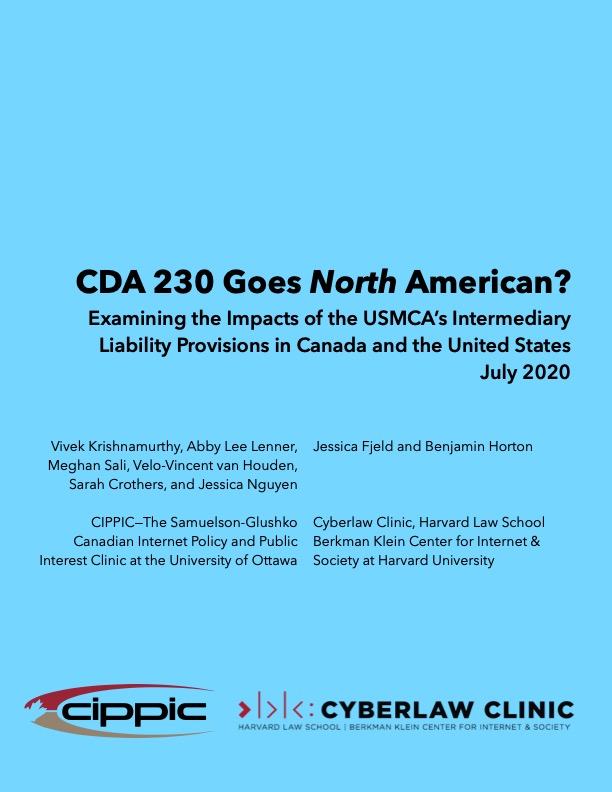
The Cyberlaw Clinic is excited to have collaborated with the Samuelson-Glushko Canadian Internet Policy and Public Interest Clinic (CIPPIC) to release a report today on the impact of the new United States-Mexico-Canada Agreement (USMCA) on intermediary liability laws in North America. The full report is available for download on SSRN. Article 19.17 of the new USMCA contains provisions modeled on Section 230 of the U.S. Communications Decency Act that protect platforms like Facebook and Google from being held liable for harmful or unlawful content posted by their users. While the liability shield the USMCA provides is quite similar to CDA § 230, the provisions differ in that the USMCA permits courts to order injunctions requiring platforms to take down content.
Given the ongoing debate in the U.S. regarding the future of CDA § 230, the report suggests that the USMCA’s approach to intermediary liability could serve as a model for amending CDA § 230, given the balance the USMCA strikes between addressing online harms and protecting platforms.
The report also outlines how current Canadian intermediary liability laws are inconsistent with the USMCA, as are some recent proposals advanced in Canada to hold social media companies liable for the content they host. Correspondingly, we recommend that careful consideration be given by federal and provincial parliamentarians to introducing legislation to align Canadian law with the USMCA, and that clarifies whether Canadian and third-country intermediaries are entitled to the protections provided by the USMCA.
Our report is the product of an unprecedented cross-border collaboration between technology law clinics in Canada and the United States on a legal issue of significance to citizens of both countries. We hope to expand the coverage of our report to include Mexico in the near future.
